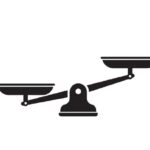Hypertension, commonly known as high blood pressure, affects millions of people worldwide and is a significant risk factor for heart disease, stroke, and other health complications. The good news is that hypertension can be managed and controlled through various strategies and lifestyle changes. In this comprehensive guide, we will explore evidence-based approaches to help you manage hypertension and lead a healthier life.
Understanding Hypertension
Before we delve into the strategies for managing hypertension, let’s briefly review what hypertension is and why it’s a matter of concern.
Hypertension is a condition characterized by elevated blood pressure, specifically when the force of blood against the walls of your arteries is consistently too high. This condition is often referred to as the “silent killer” because it can remain asymptomatic for years while silently damaging your organs and blood vessels.
Lifestyle Strategies for Managing Hypertension
1. Adopt a Heart-Healthy Diet
A heart-healthy diet can significantly impact your blood pressure. Here are dietary recommendations to consider:
| Foods to Include | Foods to Limit |
|---|---|
| Fruits and vegetables | Sodium (salt) |
| Whole grains | Processed and fried foods |
| Lean proteins (chicken, fish, beans) | Sugary beverages |
| Nuts and seeds | Red meat |
| Low-fat dairy products | Excess alcohol |
2. Reduce Sodium Intake
Excessive sodium consumption can contribute to high blood pressure. Aim to consume less than 2,300 milligrams of sodium per day (or 1,500 milligrams if you have high blood pressure or are at risk). Be vigilant about checking food labels for hidden sources of sodium.
3. Maintain a Healthy Weight
Excess body weight is a risk factor for hypertension. Achieving and maintaining a healthy weight through a combination of a balanced diet and regular physical activity can help lower blood pressure.
4. Engage in Regular Physical Activity
Regular exercise can have a significant impact on blood pressure. Aim for at least 150 minutes of moderate-intensity aerobic exercise or 75 minutes of vigorous-intensity exercise per week. Activities like brisk walking, swimming, cycling, and dancing are excellent choices.
5. Limit Alcohol Consumption
Excessive alcohol consumption can raise blood pressure. If you choose to drink, do so in moderation. For men, this means up to two drinks per day, and for women, one drink per day.
Additional Strategies for Managing Hypertension
1. Monitor Blood Pressure Regularly
Regularly checking your blood pressure at home with a home blood pressure monitor can help you keep track of your progress and detect any changes. It’s essential to follow the correct procedures for accurate measurements.
2. Stress Management
Chronic stress can contribute to high blood pressure. Incorporating stress-reduction techniques into your daily routine, such as meditation, deep breathing exercises, or yoga, can help manage stress and, in turn, blood pressure.
3. Dietary Supplements
Some dietary supplements, such as potassium, magnesium, and Omega-3 fatty acids, may have a positive impact on blood pressure. However, it’s essential to consult with a healthcare provider before adding supplements to your regimen, as they can interact with medications or have adverse effects.

Real-Life Success Stories
To illustrate the effectiveness of these strategies, let’s explore a couple of real-life success stories:
Case 1: Sarah’s Journey
Sarah, a 40-year-old woman, was diagnosed with hypertension during a routine checkup. Determined to take control of her health, she started following a heart-healthy diet, reducing her sodium intake, and engaging in regular physical activity. Over several months, Sarah’s blood pressure gradually decreased, and she was able to avoid medication altogether. Sarah’s story showcases the power of lifestyle changes in managing hypertension.
Case 2: David’s Transformation
David, a 50-year-old man with hypertension, decided to make significant lifestyle changes after a health scare. He adopted a Mediterranean-style diet, practiced daily meditation, and closely monitored his blood pressure at home. Over time, David’s blood pressure readings improved, and his healthcare provider reduced his medication dosage. David’s journey underscores the positive impact of a holistic approach to hypertension management.
Conclusion
Managing and controlling hypertension is not only possible but also essential for preventing serious health complications. Whether through dietary modifications, regular exercise, stress management, or home blood pressure monitoring, you have the tools to take control of your blood pressure and lead a healthier life. Remember that small, consistent changes in your daily routine can lead to significant improvements in blood pressure over time. Consult with a healthcare provider to create a personalized plan that aligns with your unique needs and circumstances. With dedication and the right strategies, you can effectively manage hypertension and reduce the risk of heart disease, stroke, and other health complications.
















